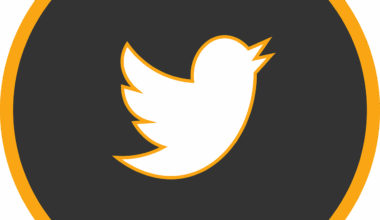Personal Brand Growth through Automated Influencer Collaborations
In today’s digital age, personal branding is essential for professionals looking to establish their authority in a particular niche. Influencer collaborations can immensely boost this branding strategy. Automated social media influencer marketing simplifies this process by connecting brands with influencers who resonate with their target audience. This seamless integration allows personal brands to engage in campaigns that not only enhance visibility but also establish trust with potential clients. Consequently, building a professional identity becomes achievable through targeted influencer partnerships. Automation tools facilitate the discovery of influencers by analyzing their audience engagement and relevance, making it easier to connect with the right individuals. Engaging with the appropriate influencers can yield substantial returns on investment. Furthermore, social media campaigns featuring influencer collaborations are designed to reach wider audiences. Through effective metrics and insights reports, brands can monitor their campaigns, ensuring optimal performance. This strategic method symbolizes the future of personal branding, where automated solutions streamline traditional processes. Additionally, personal brands now must adapt to investing time and resources in influencer marketing tools that facilitate connections. With the right approach, automated influencer marketing holds immense potential for personal brand growth.
Understanding Automated Influencer Marketing
Automated influencer marketing involves the use of technology to connect brands with influencers. This innovative approach streamlines the influencer selection process, allowing marketers to identify suitable candidates quickly. A key aspect of social media automation is enhancing precision in targeting audiences with the help of algorithms. For example, various platforms provide extensive databases of influencers segmented by niche, reach, and audience engagement metrics. Personalized suggestions offered by these platforms not only enhance campaign effectiveness but also considerably save time. Furthermore, automated tools facilitate seamless communication between brands and influencers, fostering genuine partnerships. By utilizing predictive analytics, marketers can anticipate trends and optimize campaign performance. This predictive nature of automation opens up doors for brands looking to refine their strategies. As the digital landscape grows, brands have to evolve—the rise of e-commerce embodies the necessity of adaptability. Automated influencer marketing tools can assist small businesses, allowing them to compete effectively against larger competitors. By harnessing the potential of automation, businesses can create engaging content that speaks authentic brand stories. As a result, building and maintaining relationships with the right influencers becomes attainable, aiding personal brand growth significantly.
One crucial advantage of automated influencer collaborations is efficient resource management. Marketing teams often juggle multiple campaigns, making time-consuming tasks overwhelming. Automated systems enable marketers to track and manage multiple influencer relationships with minimal effort. By simplifying the influencer marketing lifecycle, brands can focus more on strategy and creativity rather than manual outreach processes. This efficiency leads to better overall campaign execution and ultimately higher return on investment. Moreover, automating the reporting and analysis process allows marketers to gain real-time insights into campaign performance. Campaign adjustments can be made promptly based on data-driven decisions, rather than waiting till the end of the campaign cycle. Budgeting also becomes more manageable, as campaigns can be aligned consistently with business goals and expectations. A systematic approach to influencer marketing facilitates measuring each collaboration’s success against predetermined objectives. As potential collaborations are streamlined, businesses are equipped to focus on the relationships that yield the highest value. Therefore, automated influencer marketing stands not only to simplify processes but also to enhance the effectiveness of brand campaigns significantly. Ultimately, this optimization is key to growing personal brands in the competitive digital landscape.
Identifying the Right Influencers
Finding the right influencers for your brand is paramount for successful collaborations. It starts with defining your target audience to ensure compatibility with potential influencers. Once your audience is determined, social media tools offer filters to help categorize influencers based on demographics, interests, and engagement levels. Effective influencer partnerships rely heavily on genuine connections; aligning brand values with influencer messaging is crucial. This alignment creates authentic relationships, resulting in more engaging and impactful campaigns. Tracking engagement metrics across platforms enables brands to analyze and select influencers who converse meaningfully with their audiences. Additionally, researching potential influencers’ previous collaborations aids in understanding their effectiveness and reputation within your niche. Understanding audience perceptions and influencers’ influence within their communities can significantly guide decision-making. Utilizing automation tools allows for quick scalability in identifying numerous influencers while also keeping track of essential data on each potential candidate. Remember, quality far outweighs quantity. It serves brands better to collaborate with fewer, highly-engaged influencers than many with low engagement rates. The right mix of influencers can elevate personal brands substantially, fostering genuine connections with diverse audience segments.
Establishing clear collaboration goals facilitates successful automation of influencer marketing strategies. Understanding what you aim to achieve is essential, whether it’s heightening brand awareness, driving sales, or promoting a new product. This clarity allows you to frame campaign messages effectively, ensuring alignment with overall business objectives. An essential component of any campaign is defining the key performance indicators (KPIs) that measure success. These may include engagement rates, reach metrics, or conversion rates. Automating the tracking of these metrics provides real-time feedback, fostering agility in campaign adjustments. Furthermore, consistent assessment of influencer effectiveness can refine future collaboration choices. The power of automated tools lies in their ability to monitor campaigns seamlessly, delivering valuable insights into their performance. Regular evaluations allow for strategic pivots during campaigns, effectively adapting messaging and targeting to optimize results. Brands can implement A/B testing measures to understand what resonates with audiences best. By recognizing patterns in consumer behavior, marketers can create more tailored messages. This adaptability helps brands meet their audience’s expectations while ensuring that campaigns remain fresh and engaging. Ultimately, setting these goals and monitoring them through automation is vital for personal brand growth.
Building Long-term Relationships with Influencers
Long-term relationships with influencers can significantly enhance trust and credibility for personal brands. As a result, establishing partnerships requires ongoing communication and consistent engagement. Automated platforms facilitate this by providing features that ensure regular interaction, such as scheduling posts or follow-ups. Influencers appreciate brands that value their contributions, and fostering these relationships leads to collaborative growth. Regularly communicating campaign updates or new opportunities strengthens the bond, developing a sense of teamwork. Shared insights and feedback can promote creativity in future campaigns, resulting in better outcomes. Joining forces with influencers in a long-term capacity encourages content co-creation, adding unique insights that will resonate better with both audiences. Authenticity is a critical factor in influencer marketing; ongoing partnerships reinforce this by showcasing genuine brand alignment. As audiences recognize these collaborations, they develop trust and loyalty toward the brand. Such trust can translate into more impactful results and conversions. Moreover, establishing a network of influencers creates a ripple effect, as satisfied partners often promote collaborations with others in the industry. Thus, nurturing long-term influencer relationships is essential for recurring personal brand growth and loyalty amongst consumer bases.
The integration of feedback into collaboration strategies is critical for optimizing influencer marketing efforts continuously. Being receptive to input from both influencers and audiences enhances partnership satisfaction. Constructive feedback helps brands identify strengths and areas needing improvement, promoting a culture of collaboration. Utilizing automated tools to gather data also streamlines the feedback process, allowing marketers to distill insights effectively. By analyzing audience reactions to influencer campaigns, brands can better refine future initiatives. Moreover, actively engaging with influencer networks promotes transparency and builds credibility, resulting in stronger collaborative efforts. This iterative approach also encourages creativity among influencers, enabling them to experiment with diverse content while staying aligned with brand messaging. Ultimately, feedback loops contribute to a supportive ecosystem where influencers feel valued and invested. Regular evaluations of campaign performance against KPIs enable brands to celebrate successes and address any hurdles faced alongside influencers. Additionally, acknowledging influencers’ contributions strengthens trust, promoting long-term relationships that enhance brand visibility. Therefore, fostering an environment of open communication and feedback is pivotal in ensuring the success of automated influencer marketing and sustaining brand growth.
Leveraging Data Analytics for Marketing Success
Data analytics is at the heart of effective social media marketing strategies today. Leveraging data ensures that brands can make informed decisions regarding their influencer campaigns. With the capabilities of automated platforms, marketers can analyze real-time data to reveal which influencers are yielding the best outcomes. Comprehensive analytics provide insights into engagement statistics, audience reach, and demographic information, thereby allowing brands to adjust strategies based on performance. Furthermore, analyzing past campaign data leads to better forecasting of future trends within the industry, enabling marketers to capitalize on new opportunities. Brands can learn what types of content succeed and adjust accordingly to meet audience demand. These insights foster creativity when mapping out future campaigns with influencers, as strategies become data-driven rather than based on assumptions. Automation allows brands to segment their audience further, catering to specific groups for targeted messaging. Through effective data utilization, brands can tailor their approach for each unique collaboration, maximizing overall campaign impact. Ultimately, data empowers brands to optimize their marketing efforts continually, ensuring that their collaborations produce sustainable results. By embedding analytics into influencer strategies, personal brand growth becomes attainable and measurable.





